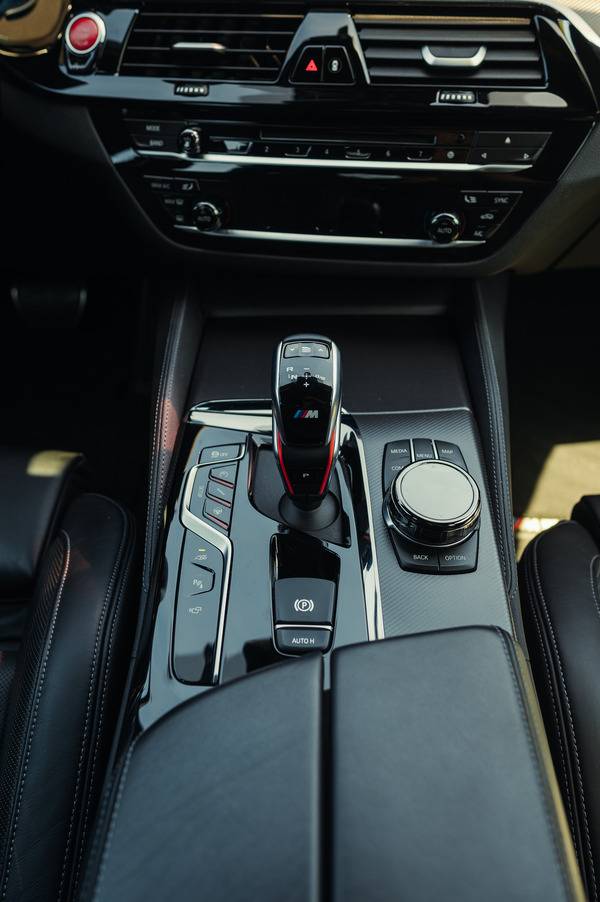
How to choose a car?
Are you in the market for a new set of wheels, but feeling overwhelmed by the countless options available? Choosing the right car can be a daunting task, especially with so many factors to consider. From fuel efficiency to safety features, and from budget to personal preferences, it’s easy to get lost in the sea of choices. But don’t worry, you’re not alone! This guide is designed to help you navigate the car-buying process with confidence, ensuring you find the perfect ride that meets your unique needs and lifestyle.

Understanding Your Needs
To make an informed decision when choosing a car, you need to start by understanding your needs. This involves taking a closer look at your lifestyle, habits, and budget to determine what type of car is best suited for you.
Identifying Your Lifestyle and Habits
Any daily commute or frequent road trips will influence your car choice. Consider how many passengers you’ll need to transport, whether you need to haul heavy loads or equipment, and if you prefer city driving or highway cruising.
Determining Your Budget
Your budget will play a significant role in narrowing down your car options. Decide how much you can afford to spend on a car, including purchase price, financing costs, fuel, maintenance, and insurance.
Your budget will also impact the features and amenities you can afford. For example, if you have a limited budget, you may need to prioritize necessarys like safety features over luxuries like heated seats. On the other hand, if you have more flexibility in your budget, you may be able to opt for a car with advanced technology or premium materials. By understanding your budget constraints, you can focus on cars that fit within your means and avoid overspending.
Researching Cars
Some of the most important steps in choosing a car involve researching different models and gathering information to make an informed decision.
Gathering Information Online
Alike many other tasks, researching cars often starts online. You can visit car manufacturer websites, online marketplaces, and automotive forums to gather information about different models, their features, and prices.
Reading Reviews and Ratings
Researching car reviews and ratings is crucial in understanding a car’s performance, reliability, and overall value. You can find reviews from experts and owners on websites like Edmunds, Kelley Blue Book, and Consumer Reports.
It’s crucial to read both positive and negative reviews to get a balanced view of a car’s strengths and weaknesses. Pay attention to common issues or praises mentioned by multiple reviewers, as they can indicate potential problems or benefits.
Consulting with Friends and Family
Familiar people who own cars can be a valuable source of information. You can ask your friends and family members about their car-buying experiences, the pros and cons of their vehicles, and any advice they might have.
For instance, they may have insights into a car’s fuel efficiency, maintenance costs, or reliability, which can help you make a more informed decision. Additionally, they may be able to give you a firsthand look at the car’s features and condition, helping you to better visualize your potential purchase.
Key Factors to Consider
Unlike buying a pair of shoes or a handbag, choosing a car requires careful consideration of several key factors. Here are some imperative things to think about when selecting your next vehicle:
- Fuel efficiency and running costs
- Safety features and crash test ratings
- Comfort and ergonomics
- Infotainment and technology
Assume that you’ll be spending a significant amount of time in your car, so it’s crucial to get these factors right.
Fuel Efficiency and Running Costs
While fuel prices may fluctuate, your car’s fuel efficiency will have a significant impact on your wallet. Consider the type of fuel your car uses, its fuel economy, and the estimated annual fuel cost to ensure you’re making an informed decision.
Safety Features and Crash Test Ratings
Now, more than ever, safety features are a top priority when buying a car. Look for vehicles with advanced safety features like lane departure warning systems, blind spot detection, and forward collision warning.
Safety should always be your top concern when choosing a car. Be sure to research the vehicle’s crash test ratings from reputable organizations like the National Highway Traffic Safety Administration (NHTSA) and the Insurance Institute for Highway Safety (IIHS).
Comfort and Ergonomics
Clearly, a comfortable car is imperative for any driver. Consider the seat material, legroom, and adjustability to ensure you’ll be happy behind the wheel. Don’t forget to check the visibility, steering wheel feel, and overall ergonomics of the vehicle.
Test drive the car to get a feel for how comfortable you are in the driver’s seat. You’ll be surprised at how much of a difference a well-designed interior can make on your daily commute.
Infotainment and Technology
With the rise of smartphones, in-car technology has become a major selling point. Look for features like Bluetooth connectivity, voice command, and a user-friendly infotainment system to keep you connected on the go.
Comfort and convenience go hand-in-hand when it comes to infotainment systems. Consider the type of features that matter most to you, such as navigation, Apple CarPlay, or Android Auto, to ensure you’re getting the best tech for your needs.
Tips for Test Driving
Your test drive is a crucial part of the car-buying process. It’s your chance to get behind the wheel and see if the car is right for you. Here are some tips to keep in mind:
- Take your time and don’t rush the test drive.
- Pay attention to how the car handles and responds to your input.
- Test the car’s features, such as the infotainment system and climate control.
- Check for any unusual noises or vibrations.
- Get a feel for the car’s acceleration and braking performance.
Assume that the salesperson will be watching your every move, so don’t hesitate to ask questions or request clarification on anything.
Preparing for the Test Drive
If you’ve done your research and have a good idea of what you’re looking for in a car, you’ll be better prepared for the test drive.
What to Look for During the Drive
If you’re paying attention, you’ll be able to get a sense of whether the car is comfortable and easy to drive.
Another thing to consider is how well the car’s features work together. For example, how easy is it to pair your phone with the infotainment system? Are the controls intuitive and easy to use?
Questions to Ask the Salesperson
There’s no such thing as a dumb question when it comes to buying a car, so don’t be afraid to ask the salesperson anything that comes to mind.
Drive the conversation by asking open-ended questions that can’t be answered with a simple “yes” or “no”. This will give you a better sense of the car’s features and capabilities, and help you make a more informed decision.

Evaluating Car Features
When choosing a car, it’s necessary to evaluate the features that matter most to you. This will help you narrow down your options and find the perfect vehicle for your needs.
Engine and Transmission Options
While considering engine and transmission options, think about your driving habits and needs. Do you prioritize power and speed or fuel efficiency and low maintenance costs? You’ll want to research the different types of engines, such as gasoline, diesel, or hybrid, and transmission types, like automatic or manual, to determine which one is best for you.
Interior Space and Comfort
There’s more to interior space than just the number of passengers a car can seat. Consider the comfort and amenities you need, such as legroom, cargo space, and infotainment systems.
It’s also important to think about the ergonomics of the driver’s seat and the overall layout of the dashboard. You’ll be spending a lot of time behind the wheel, so make sure the car is designed with your comfort in mind.
Exterior Design and Features
Engine performance is just one aspect of a car’s overall package. You’ll also want to consider the exterior design and features, such as the body style, color options, and additional features like alloy wheels or a sunroof.
Another important factor to consider is the car’s safety features, such as airbags, anti-lock brakes, and advanced driver-assistance systems. These features can provide peace of mind and protect you and your passengers on the road.
Making a Decision
Once again, you’ve reached the final stage of choosing a car. It’s time to weigh your options, compare your top choices, and negotiate the price.
For inspiration, you can check out how others make their decision on How do you decide what car to buy (model, new vs used, etc)? What process do you use?
Weighing the Pros and Cons
Decision time requires careful consideration of the advantages and disadvantages of each car. Create a table to organize your thoughts:
| Pros | Cons |
|---|---|
| Good fuel economy | Higher purchase price |
| Spacious interior | Poor safety ratings |
| Low maintenance costs | Outdated technology |
| Stylish design | Limited color options |
| Reliable brand | Noisy engine |
| Advanced safety features | Complex infotainment system |
| Good resale value | Tight rear seats |
| Smooth ride | Poor visibility |
| Warranty coverage | Higher insurance rates |
Comparing Cars Side-by-Side
Clearly, you need to see how your top choices stack up against each other. Create a table to compare key features:
| Car A | Car B |
|---|---|
| Price: $25,000 | Price: $28,000 |
| Fuel economy: 30 mpg | Fuel economy: 25 mpg |
| Interior space: 100 cu ft | Interior space: 120 cu ft |
| Safety rating: 4/5 | Safety rating: 5/5 |
Comparing cars side-by-side will help you identify which features are most important to you and which car best meets your needs.
Negotiating the Price
Making a strong case for your desired price requires research and confidence. Know the market value of your chosen car and be prepared to negotiate.
To get the best deal, research the car’s market value, know your budget, and don’t be afraid to walk away if the price isn’t right. Recall, negotiation is a conversation, not a confrontation.
Conclusion
Now that you’ve considered your budget, lifestyle, and personal preferences, you’re well-equipped to choose a car that’s perfect for you. Remember to research thoroughly, test drive a few options, and don’t hesitate to ask questions. By following these steps, you’ll find a car that meets your needs and provides years of reliable service. With patience and persistence, you’ll be driving away in your dream car in no time, enjoying the freedom and independence that comes with owning a vehicle that’s truly yours.



